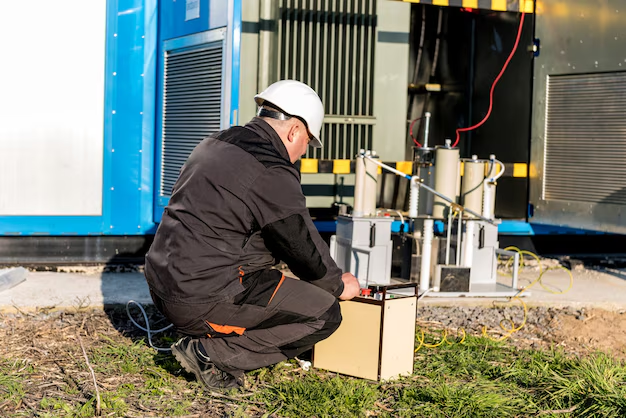Choosing the Right Generator Size for Your Refrigerator and Freezer Needs
Imagine a stormy night when the power goes out, and you’re left wondering if your refrigerator and freezer’s contents will spoil. Having a reliable generator can keep your food safe and your mind at ease. But how do you choose the right generator size to power these vital appliances? Understanding the factors involved is essential for making a confident choice.
Assessing Your Power Needs
Understanding Wattage Requirements
Wattage Matters: To power your refrigerator and freezer during an outage, it’s crucial to know their starting and running wattage. Starting wattage refers to the power required to start the appliance, typically higher than the running wattage, which is the power needed to keep it operating. Commonly, refrigerators and freezers fall between 600 to 800 running watts, but the starting wattage can be significantly higher, depending on the model.
Calculating Total Power
To calculate the total power needed, consider:
- Check the appliance’s manual or label: Find the running wattage.
- Add the starting wattage: This is often listed as a percentage over the running wattage or provided directly.
- Factor in extra devices: If you plan to power additional devices, consider their requirements too.
Example Calculation
Suppose you have a refrigerator with a running wattage of 700 watts and a starting wattage of 2100 watts. If you want to power a few lights or a small appliance concurrently, you’ll need to consider their wattage too.
Prioritizing Appliances
In emergencies, prioritize which appliances are essential. While refrigerators and freezers are critical to avoid food spoilage, small lights and chargers might also be necessary.
Choosing the Right Generator
Types of Generators
Choosing between portable and standby generators depends on your requirements:
Portable Generators: Great for temporary power solutions, usually supporting 3000 to 6500 watts. Suitable for those who need to manage a couple of appliances during short outages.
Standby Generators: Automatically provide power, a more permanent solution for extended outages, typically offering 7000 watts or more, which is ideal for larger homes with extensive power needs.
Determining Generator Size
After calculating combined wattage needs, choose a generator that exceeds this total by approximately 20%. This ensures you have extra capacity for additional devices and prevents overloading.
Fuel Considerations
Different generators operate on varying fuels, such as gasoline, propane, or natural gas. Consider the availability, cost, and convenience of the fuel type:
- Gasoline: Widely accessible, but can degrade over time and has a shorter runtime.
- Propane: Longer shelf-life and cleaner burning, though less energy-dense.
- Natural Gas: Convenient for homes with a gas line but less portable.
Practical Tips for Using Generators with Refrigerators and Freezers
Connecting Generators Correctly
- Use heavy-duty extension cords: Ensure they are rated for the electrical load you intend.
- Avoid backfeeding: It’s hazardous and may damage your appliances and grid infrastructure.
- Maintain proper ventilation: Generators must be operated outdoors to prevent carbon monoxide poisoning.
Power Management Strategies
- Cycle power: Alternate between running the refrigerator and freezer to manage load effectively.
- Minimize door opening: Helps maintain temperatures and reduces power consumption.
Considerations for Efficient Generator Use
Energy-Efficient Appliances
Invest in energy-efficient refrigerators and freezers. These can lower overall power needs, enabling a smaller, less costly generator.
Regular Maintenance
Routine maintenance is critical to reliable generator performance:
- Keep fuel fresh; inspect and replace the spark plug, oil, and filters as needed.
- Test the generator periodically to ensure it’s in working condition.
Preparing for Emergencies
Stock up on essential items and have a planned strategy for using generators during outages. Practice setting up your generator and test its load capabilities to prepare for unexpected situations.
Visual Summary: Quick Tips for Generator Selection
Here’s a handy summary to visualize the essentials:
| Aspect | Details |
|---|---|
| Calculate Wattage | Add up starting and running watts of all devices. |
| Generator Type | Choose portable for short-term or standby for longer outages. |
| Optimal Size | Total wattage + 20% extra capacity. |
| Fuel Type | Consider availability: Gasoline, Propane, Natural Gas. |
| Setup and Safety | Use correct cords, avoid backfeeding, ensure ample ventilation. |
Reflecting on Reliability and Preparedness
The process of selecting the right generator is a proactive step in preparing for unexpected power outages. By understanding the wattage needs, evaluating generator types, and adhering to safe operational practices, you can secure your home’s most indispensable appliances with confidence. Investing in a suitable generator and preparing adequately will ensure that, come rain or shine, your refrigerator and freezer—and, by extension, your lifestyle—remain uninterrupted.

